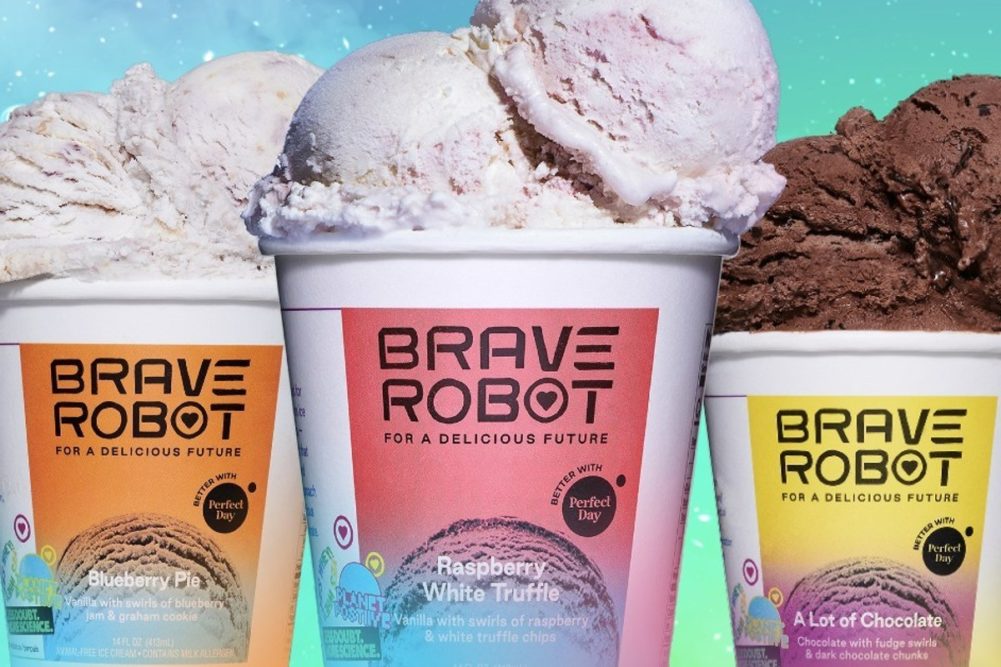LOS ANGELES – Animal-free dairy ice cream brand Brave Robot released environmental impact data obtained through a third-party assessment that found its non-traditional methods for producing ice cream reduce greenhouse gas emissions by 72%.
The comprehensive, ISO-compliant life cycle assessment from WSP Global, Inc., evaluated the climate impact of Brave Robot’s vanilla ice cream throughout the supply chain.
The research found that, compared to ice cream made through conventional dairy production methods, Brave Robot’s process utilizing animal-free whey protein from Perfect Day reduces GHG emissions by 72%, non-renewable energy use by 60% and blue water consumption by 23%.
"It's incredibly rewarding to quantify our impact potential as we continue to create delicious foods that don't compromise on consumer experience and are also kinder to the planet than their traditional counterparts," said Paul Kollesoff, founder and general manager at The Urgent Company, which launched Brave Robot. "Our impact and business goals are inextricably linked, and this study quantifies for us what the success of Brave Robot means for the future of our planet."
As further examples of the product’s potential, according to the data obtained through the sustainability assessment, if 1,000 consumers bought Brave Robot instead of traditional dairy ice cream for one year, that scenario would save the equivalent of:
• Greenhouse gas emissions from 2,100 miles driven.
• The energy needed to power 21 US households for one day.
• The recommended daily drinking water intake for 26,240 people.
In another hypothetical, Brave Robot also shared that if its animal- and lactose-free dairy ice cream replaced half of the traditional dairy ice cream consumed annually in the US, that would equate in carbon emissions savings to removing 927,174 cars from the country’s roads.
The brand’s pints are sold throughout the US at more than 5,000 retail stores, including Kroger, Shaw's, and Stop & Shop locations, as well as on the Brave Robot website.

